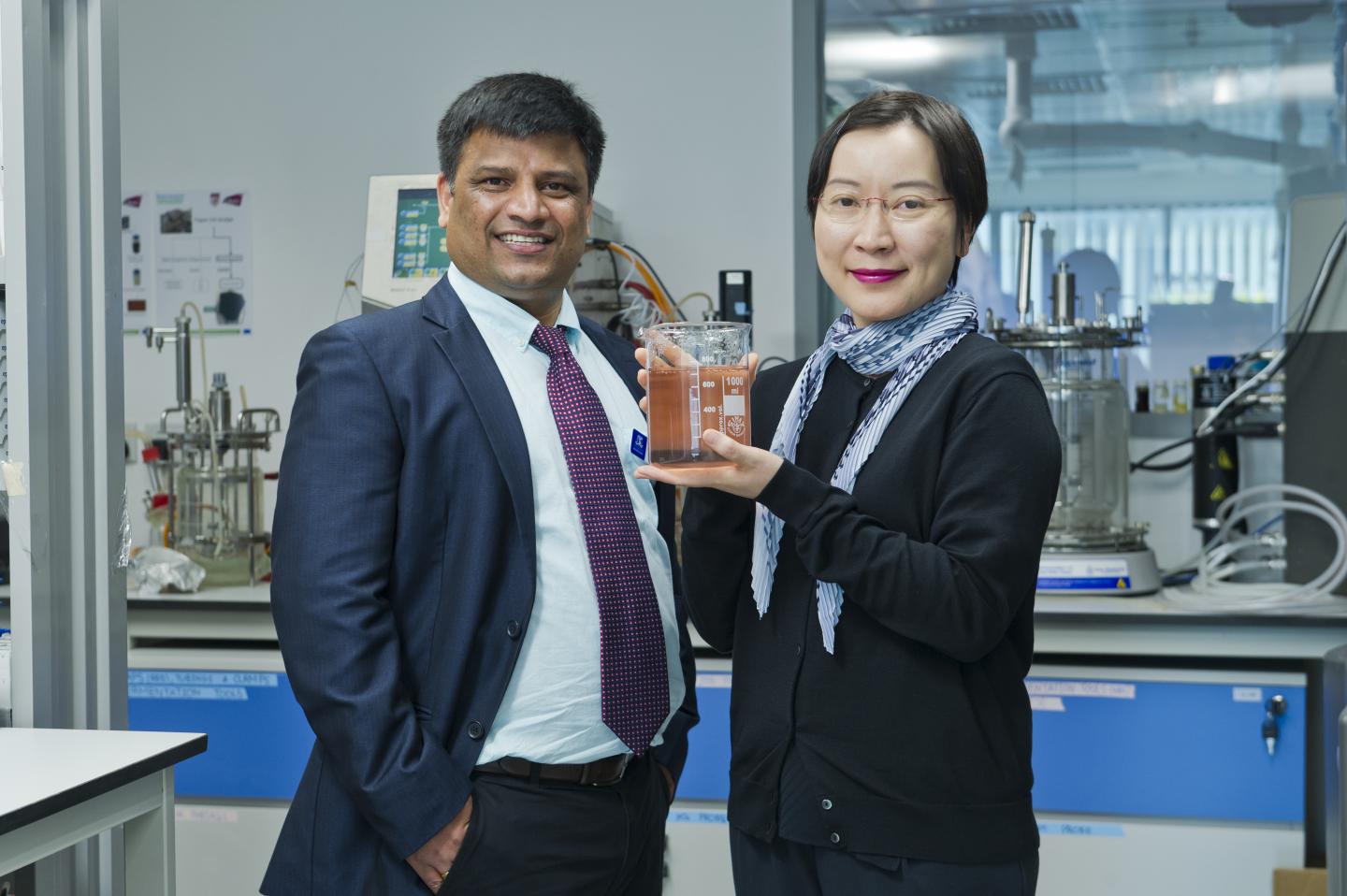To investigate the growth of multiple strains of human gut microbes in a single reactor

Credit: City University of Hong Kong
An environmental scientist at City University of Hong Kong (CityU) has been awarded US$100,000 by Grand Challenges Explorations (GCE), an initiative of the Bill & Melinda Gates Foundation (the foundation), for a novel way to cultivate 10 distinct probiotic bacteria simultaneously.
Dr Carol Lin Sze-ki, Associate Professor in CityU’s School of Energy and Environment (SEE), an expert on microbial fermentation and bioprocessing, will lead the project in collaboration with Dr Srinivas Mettu from the Department of Chemical Engineering at The University of Melbourne, with expertise in soft surfaces and hydrogels.
GCE supports innovative thinkers worldwide to explore ideas that can break the mold in how we solve persistent global health and development challenges. Dr Lin and Dr Mettu’s bold idea is one of 56 GCE Round 22 grants announced by the foundation from approximately 1,700 proposals submitted in the round (i.e. an overall successful rate of 3.3%).
The grant will be used to develop a specially designed bioreactor that can accommodate a huge variation in the microbial environment. Mimicking the human gut, the microbial environment enables the growth of multiple strains of probiotic bacteria. The bioreactor can help to manufacture low-cost gut microbial biotherapeutics with a target cost of USD$0.1 per dose consisting of 1 billion bacteria.
Gut microbiota is a community of microorganisms that lives in the digestive tracts of humans. The reduced diversity of gut microbiota affects health. Fermenting individual commercial probiotic bacteria is common in the market, but the complex microbial diversity existing in the human gut cannot be restored using a single strain of probiotic bacteria. However, live biotherapeutic products containing multiple strains of probiotic bacteria can perform this function.
“To produce low-cost gut microbial biotherapeutics is very challenging” said Dr Lin, adding that gut microbiota across the digestive tract contains a massive amount of aerobic and anaerobic bacteria that requires various growth conditions such as different nutrients, gas composition and pH values. As such, these gut microbes are currently cultivated individually and then mixed together to form a biotherapeutic product, which is a complex and costly process.
However, in the research, titled “Novel Bio-Degradable Radial Gradient in-situ-FiBrous-Bed Reactor”, the team will develop such a bioreactor using the intelligent design of immobilisation materials, i.e. the cellulose hydrogel to cultivate the bacteria, with varying degrees of spatial structuring and gradients.
“There are well-developed and low-cost bio-degradable materials such as cellulose [abundant plant-based material] hydrogels, which are ideal candidates for immobilising gut bacteria” said Dr Mettu. “However, these materials need novel modification strategies so that they can be integrated into the free cell fermenters to simulate the human gut environment in the fermenters”.
Dr Greg Martin, who is the other investigator in the team and a chemical engineer with bioprocessing expertise in the Department of Chemical Engineering at The University of Melbourne, said, “Creating an artificial environment to grow complex mixtures of gut bacteria is a significant engineering challenge. The use of immobilisation materials will enable different species to grow rapidly under their own optimal conditions in a low-cost, scalable reactor”.
###
Grand Challenges Explorations is a US$100 million initiative funded by the Bill & Melinda Gates Foundation. Launched in 2008, over 1,420 projects in more than 65 countries have received Grand Challenges Explorations grants. The grant program is open to anyone from any discipline and from any organization. Initial grants of US$100,000 are awarded two times per year. Successful projects have the opportunity to receive a follow-on grant of up to US$1 million.
Media Contact
P.K. Lee
[email protected]
Original Source
https:/




